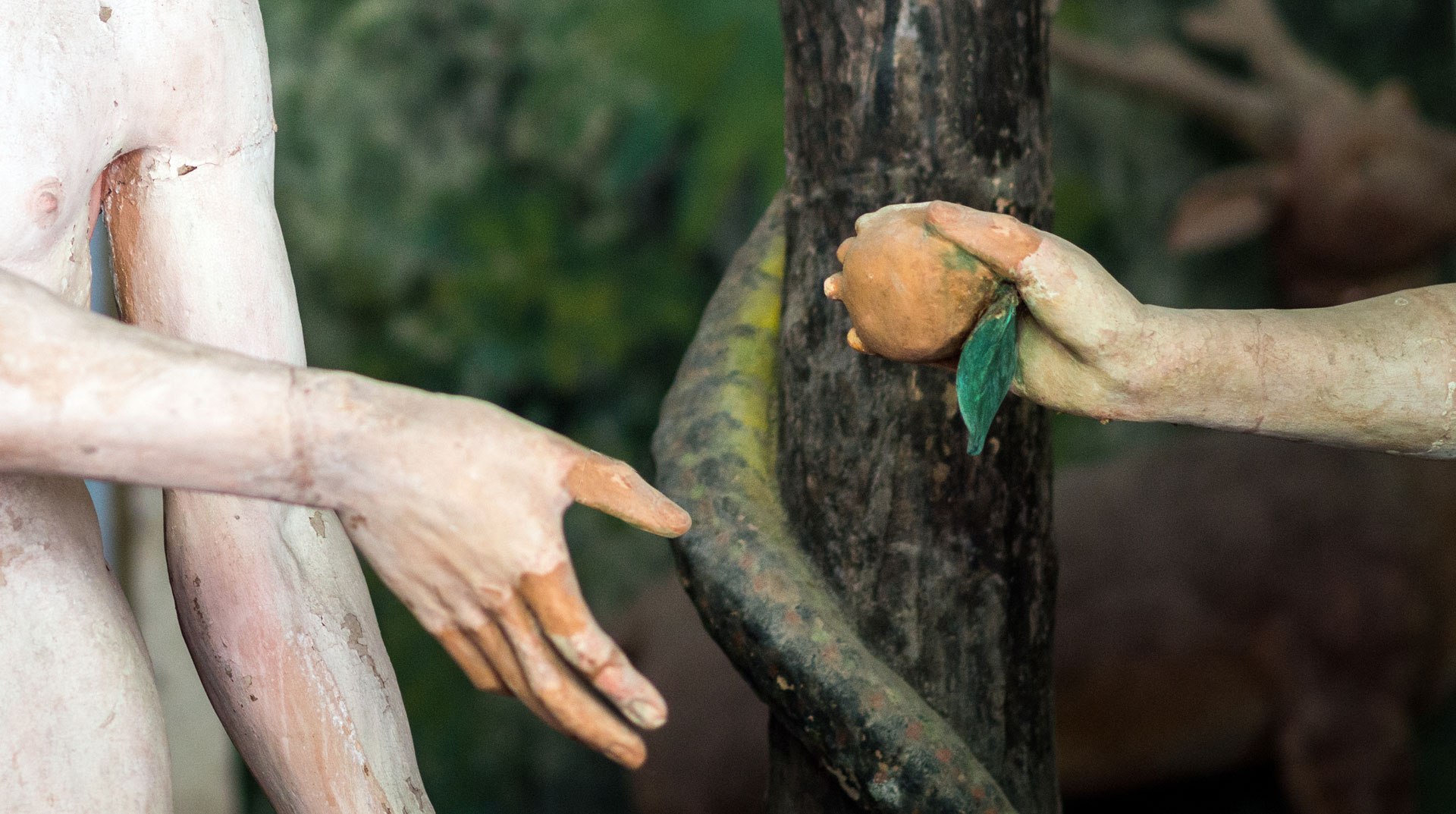.
It is very easy to show that Jesus was among Adam's biological posterity.
To begin with: the Bible says Jesus was on track for David's throne.
● Luke 1:32-33 . .The Lord God will give him the throne of his father David, and he
will reign over the house of Jacob forever; his kingdom will never end.
Before any man can be considered for the throne, they must first be one of David's
paternal descendants; and that's on oath.
● Ps 132:11 . .The Lord has sworn in truth unto David; and He will not turn from it:
"Of the fruit of your body will I set upon your throne"
The new testament verifies that Jesus satisfies the paternal requirement.
● Acts 2:29-30 . . Men and brethren, let me freely speak unto you of the patriarch
David, that he is both dead and buried, and his sepulcher is with us unto this day.
Therefore being a prophet, and knowing that God had sworn with an oath to him,
that of the fruit of his loins, according to the flesh, he would raise up Christ to sit on
his throne.
● Rom 1:1-3 . . Jesus Christ our Lord, which was made of the seed of David
according to the flesh
The Greek word for "seed" is a mite ambiguous because it can refer to spiritual
posterity as well as biological progeny; but in David's case; seed refers to biological
posterity because Jesus was 1) the fruit of David's body and 2) of David's loins
according to the flesh.
So then, seeing as how Jesus was among David's biological descendants, then of
course Jesus was among Adam's biological descendants too because we all, including
David, descend from a common ancestor.
● Gen 3:20 . . Adam named his wife Eve, because she would become the mother of
all the living.
● Acts 17:26 . . He made from one, every nation of mankind to live on all the face
of the earth.
FAQ: Well if Jesus really was one of Adam's biological descendants, then why didn't
he inherit the so-called fallen nature?
REPLY: The fallen nature isn't inherited. I know that's true because Eve was fully
constructed with material taken from Adam's body prior to his tasting the forbidden
fruit, so it was impossible for him to pass the fallen nature to her by means of
heredity.
The thing is: according to Rom 5:12-21 Adam is the cause of his posterity's
fallen nature, but according to Eph 2:1-2 & Heb 2:14 he isn't the source of it.
_
Christ was of the seed of Abraham and David so was fully man, but we also have what gives us greater understanding when it comes to what He came with. Christ was born it says when Mary was found with child, "of the Holy Ghost'. Do you think He would be given a mind full of sin and predisposed to iniquity, of course not. It was one that Adam was given, not full of lust or evil desires, one before the fall but still like Adam able to be tempted and sin, thus the true test of the temptation brought by the devil in the wilderness, otherwise it was just a farce, a charade played out with no real test. This change, the transformation, the new heart created that David spoke of, the born again experience we must go through that Christ spoke of, on the road to sanctification.
When we turn to Christ fully we are justified by faith, but we then have to be sanctified by the power of the Holy Spirit, and this is a free gift available to every man, thus Christ has no advantage, we stand at the same place with this 'mind of Christ' given us. We then come before God, transformed with a new heart, perfect, and able to stand just before His judgement rather than 'filthy rags' we have of self.
The seed, the flesh was Adam after the fall. But the mind had no propensity to sin, no thoughts of iniquity, it was the the mind, the thinking, the reasoning that Adam was given before the fall. Our thinking rises above the flesh, it contains the essence of who we are, it is where the Holy Spirit transforms, or as David asks, creates a new heart and new spirit. It is where we are born again, not in the flesh, but our minds, and sanctified and made perfect before God.
Its not fully explained, yet we are given the pieces to understand how our characters are changed, our thoughts cleansed and the fruits of the Spirit flow out from it. Its all there, we just have to grasp and comprehend how it all comes together. Lets go over what scripture gives us, which I think you know well, but lets look to see if what it supports that Christ had a mind that was as what Adam was given and how the robe of Christ righteousness/mind of Christ comes into play.
We read
1 Peter 2:24
21 For even hereunto were ye called: because Christ also suffered for us,
leaving us an example, that ye should follow his steps:
22
Who did no sin, neither was guile found in his mouth:
23 Who, when he was reviled, reviled not again; when he suffered, he threatened not;
but committed himself to him that judgeth righteously:
24 Who his own self bare our sins in his own body on the tree,
that we, being dead to sins, should live unto righteousness: by whose stripes ye were healed.
Here we are given an example of one who did 'no sin' that we should follow and commit ourselves to God, 'that we being dead to sin' like Christ 'should live unto righteousness' and it adds 'by whose stripes ye were healed'.
So what I read is that it says we should reach the standard of no sin and be dead to sin and live to the level of righteousness that Christ, who heals or (cleanses) us from sin. We see this clearly in this verse.
1 John 3:5
And ye know that
he was manifested to take away our sins; and in him is no sin.
This confirms not only that He cleanses us but was manifested for this, and we saw how He was manifested in Matthew and we see also in Luke.
Matthew 1:18-20
18 Now the birth of Jesus Christ was on this wise: When as his mother Mary was espoused to Joseph, before they came together,
she was found with child of the Holy Ghost.
19 Then Joseph her husband, being a just man, and not willing to make her a public example, was minded to put her away privily.
20 But while he thought on these things, behold, the angel of the Lord appeared unto him in a dream, saying, Joseph, thou son of David, fear not to take unto thee Mary thy wife:
for that which is conceived in her is of the Holy Ghost.
Luke 1:35
And the angel answered and said unto her,
The Holy Ghost shall come upon thee, and the power of the Highest shall overshadow thee: therefore also that holy thing which shall be born of thee shall be called the Son of God.
The Holy Ghost would not have conceived a child with a mind of sin and corruption of iniquity, and we see that it says a 'holy thing'. And Gods Word is clear that this child who was Christ is not made with a mind after the fall, it is 'without blemish and without spot'.
1 Peter 1:18-19
18 Forasmuch as ye know that ye were not redeemed with corruptible things, as silver and gold, from your vain conversation received by tradition from your fathers;
19 But with the precious blood of Christ
, as of a lamb without blemish and without spot:





